
How much does it cost to install a doorbell camera? It depends on whether you plan to DIY or hire a pro. Learn about different models and their power sources, too.
Don’t sound the alarm just yet


The average cost for a home alarm system is around $750, but prices can range between $300 and $1,200, depending on the type of system.
Security camera installation is more expensive than other types and ranges between $600 to $2,000.
Window and door sensors can be as low as $25, but higher-end sensors can cost as much as $300.
Carbon dioxide and smoke alarms are vital for safety and can cost between $20 to $150 each.
Homeowners can expect to pay between $350 to $500 to install motion sensor lights.
Home alarm systems can catch crime, alert you to smoke, fire, gas, and water issues, and make your house feel like home sweet home. But not every home alarm system adds value to your home, and knowing which ones are essential and which ones you can skip might save you money. We’ve evaluated the different types of home alarm systems to help you see if they’re worth it for your home.
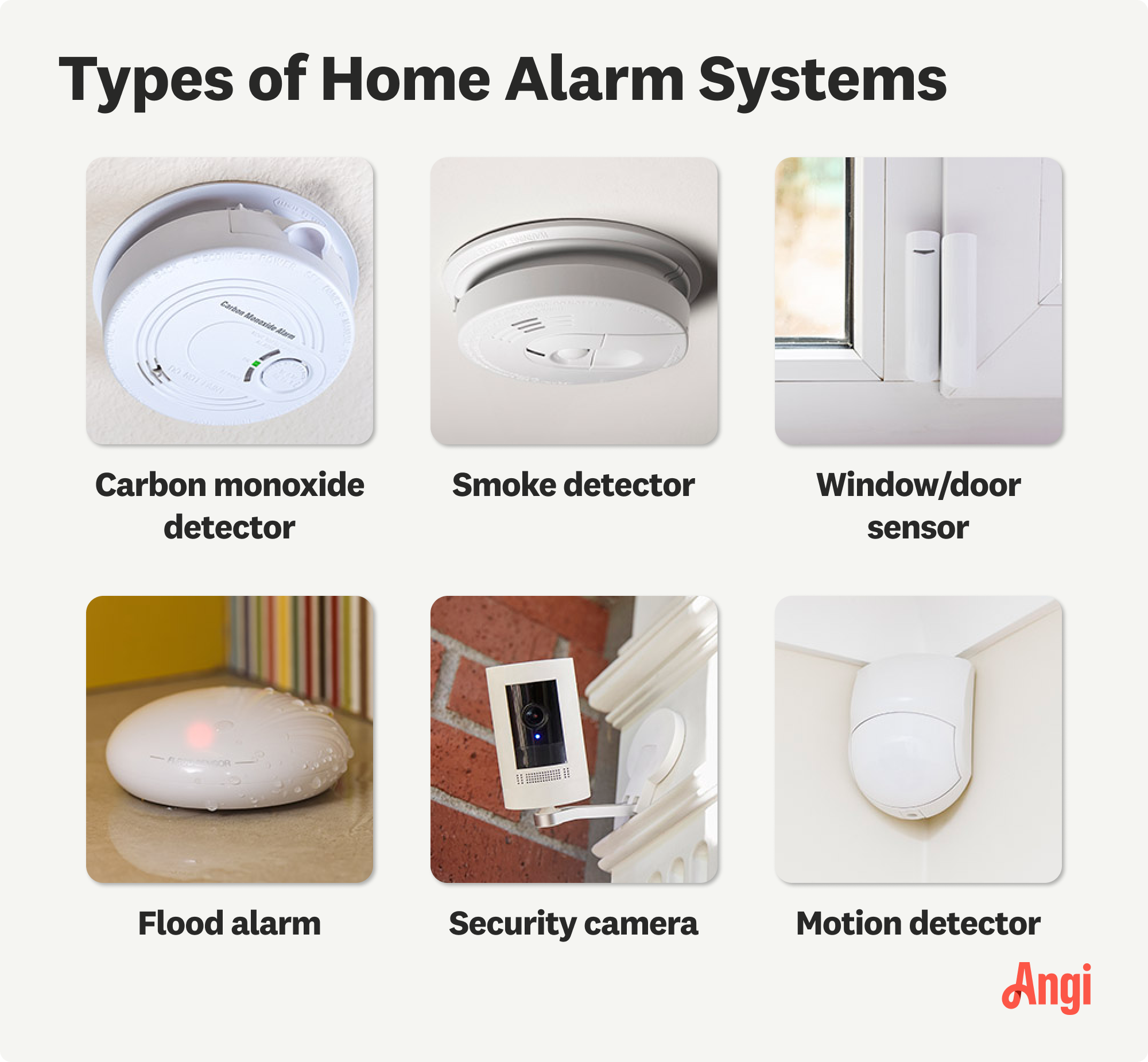
There are several different types of alarm systems on the market, allowing you to customize your home alarm system as you see fit. Some may be more worthwhile for your home than others, so let’s break down each home alarm system by type.
According to the U.S. Centers for Disease Control (CDC), more than 400 Americans die from CO poisoning and more than 100,000 go to the emergency room per year. A carbon monoxide alarm can help prevent you or your family members from becoming another statistic. This detector is an essential home alarm system since carbon monoxide poisoning can go undetected until health problems arise.

Smoke detectors are another common type of home alarm system—most states require that every home has at least one smoke detector. You should put a smoke detector on every floor of your home. Having a smoke detector can prevent you from sleeping through a house fire, alert neighbors of a fire during your absence, and allow you to take swift action to put out a fire before it damages your home.
These sensors can catch intruders as soon as they attempt to break into access points on your property by sending an alarm when someone opens your doors or windows. Placing them in your windows can give you more confidence in your window security—another home security tip for taking it up a notch is to install glass break sensors, which also detect when someone breaks the glass to get inside.
Door and window sensors might not make sense for locations with heavy foot traffic, as you could get false signals or need to frequently turn the sensors off and on when you want to crack open the window or enter from a door with a sensor on it.
Flood detection systems use sensors that emit an alert when they come into contact with water. If you live in a region that experiences floods, then installing a home flood detection system could be a crucial part of your home’s security system. Flood alarms detect water leaks and flooding in your home by sending an alarm. Even if you don’t live in a flood zone, you can still use flood systems to detect leaks, burst pipes, and other water-related threats.
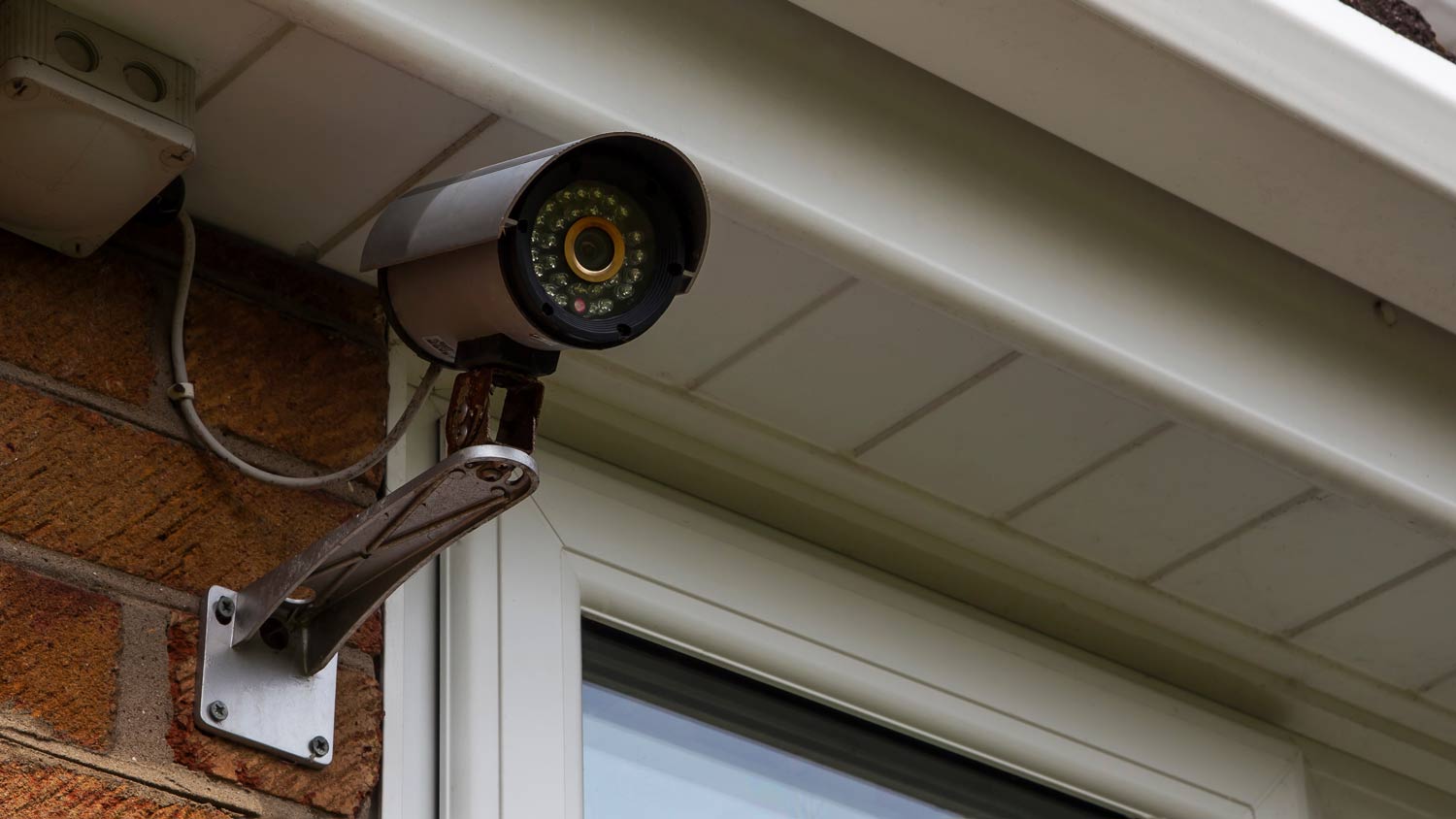
If you want to install a security camera system, the best home security companies offer several types of security cameras, including manual, automatic, and monitored systems that can either be wired or wireless. Security cameras offer major benefits over other security systems designed to prevent crime because you can view your home, receive notifications, and—depending on the quality and features—record, speak to, and hear footage.
Just how worth it a home camera system is will depend on the features you choose. For example, homeowners with a monitoring subscription may find greater comfort knowing that their home is monitored 24/7 compared to homeowners with manual monitoring.
Security cameras, lights, and window and door sensors can come with motion detectors that either send an alarm, start recording, or trigger lighting to come on in the presence of motion. These home alarm systems can be beneficial, but keep in mind that false alarms happen in high-traffic areas from nonthreatening motions like people, pets, wildlife, and vehicles. For this reason, motion detectors work best in areas with low traffic.
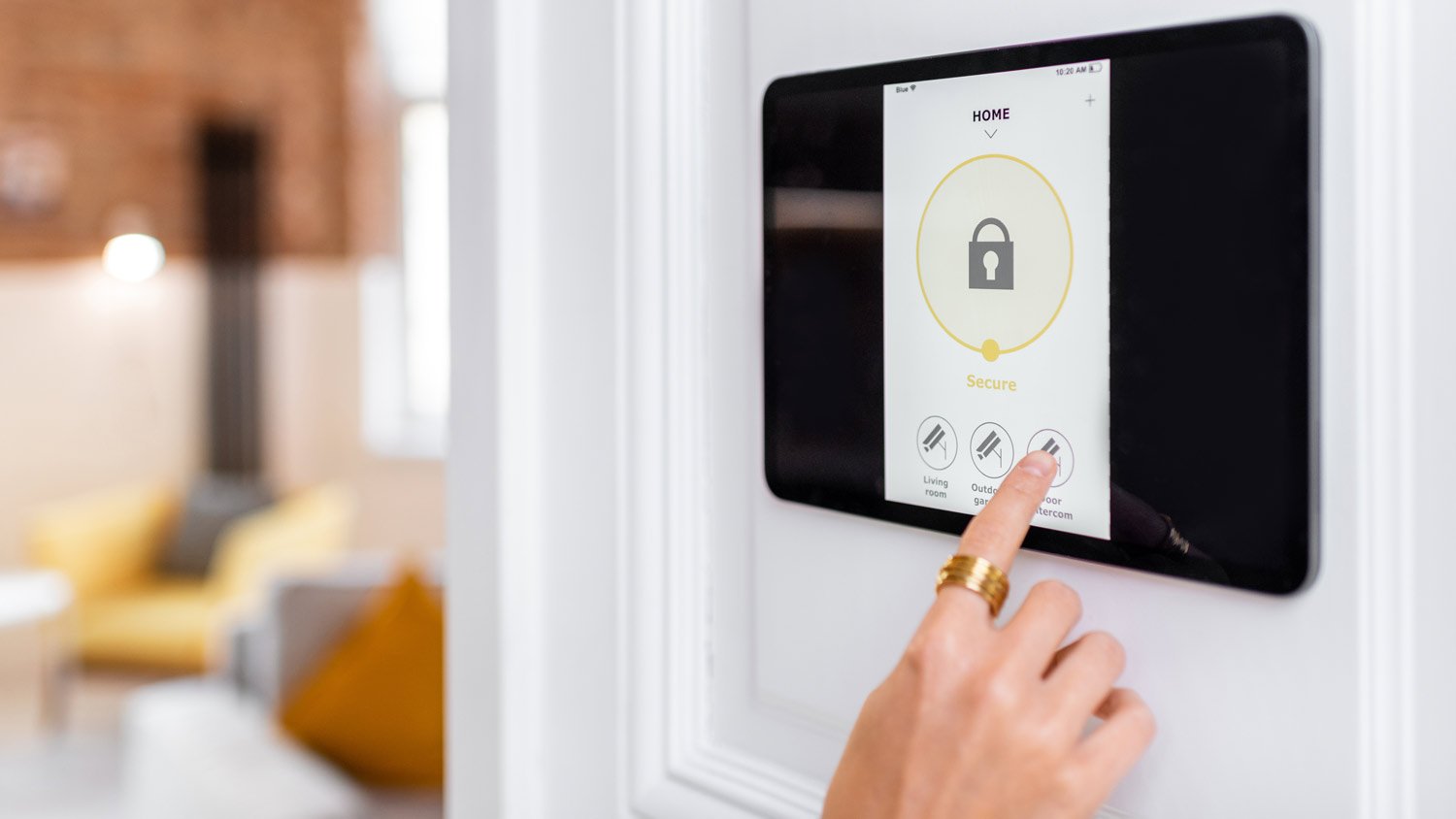
Whether or not a home alarm system is worth it for your house depends on what you’re hoping to gain by installing one. Your budget, layout, lifestyle, and location all impact the efficacy of your system.
If you’re on a tight budget, investing in a whole-home security system might be out of your price range. However, if you have wiggle room to splurge, then it might be more worthwhile to invest in top-of-the-line alarm equipment. Additionally, some home insurance providers offer discounts for installing home security systems, fire alarms, smoke detectors, and sprinkler systems. While these discounts may not cover the full cost of these security measures, the potential savings are a financial bonus to the added protection for your family.
Every home is different, so it’s important to factor in your layout. For example, if you have many high-up windows that are difficult to reach, it might not make sense to invest in window sensors since crime is less likely to occur and the cost of investing in many window sensors can quickly add up.
High-traffic areas of your home could make investing in motion sensor technology less useful. Not only will your alarm go off needlessly, but you could also drain the battery faster if you’re using wireless sensors. Meanwhile, if you’re looking for backyard security for a secluded, quiet space, then you might greatly benefit from having motion-sensing lighting come on to ward off intruders.
Flood zones benefit more from flood alarms than homes in arid regions—although flood sensors can still be useful for catching plumbing issues. If you have spotty internet, it’s also worth considering how that could impact monitoring systems that require reliable signals.
Each home alarm system has its own price range, but most home security system installations cost somewhere between $300 and $1,200, or around $750 on average. You’ll find that high-end systems with all the bells and whistles cost more than simple alarm systems. Here’s a breakdown by the type of alarm system:
Flood detection alarm cost: $10 to $275
Carbon monoxide detector cost: $20 to $100
Window and door sensors cost: $25 to $300
Smoke detector cost: $70 to $150
Motion sensor lights cost: $350 to $500
Security camera installation cost: $600 to $2,000
The advantages and disadvantages of home alarm systems can make it hard to decide if one is right for your home. Here are a few pros and cons to help you decide.
| Pros | Cons |
|---|---|
| Increases home security | Can give a false sense of security |
| Easy to install | May not be necessary |
| Makes you feel safer | May be costly |
| Protects your valuables |
Many home alarm systems are DIY-friendly, which can help save on the cost of installing one. However, if you want to maximize your home’s safety, it never hurts to work with a professional security camera company near you who knows the best locations for installing your home alarm system.
From average costs to expert advice, get all the answers you need to get your job done.

How much does it cost to install a doorbell camera? It depends on whether you plan to DIY or hire a pro. Learn about different models and their power sources, too.

From warding off intruders to protecting from falls, bars on windows can make a home much more secure. Here’s how much it costs to install bars on windows.
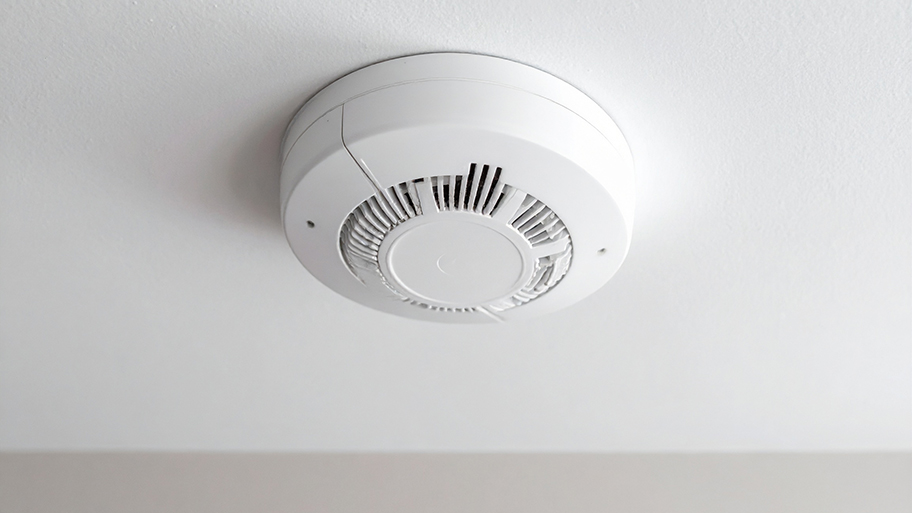
Discover true smoke detector installation costs. Learn about average prices, cost factors, and tips to save on your smoke detector installation project.
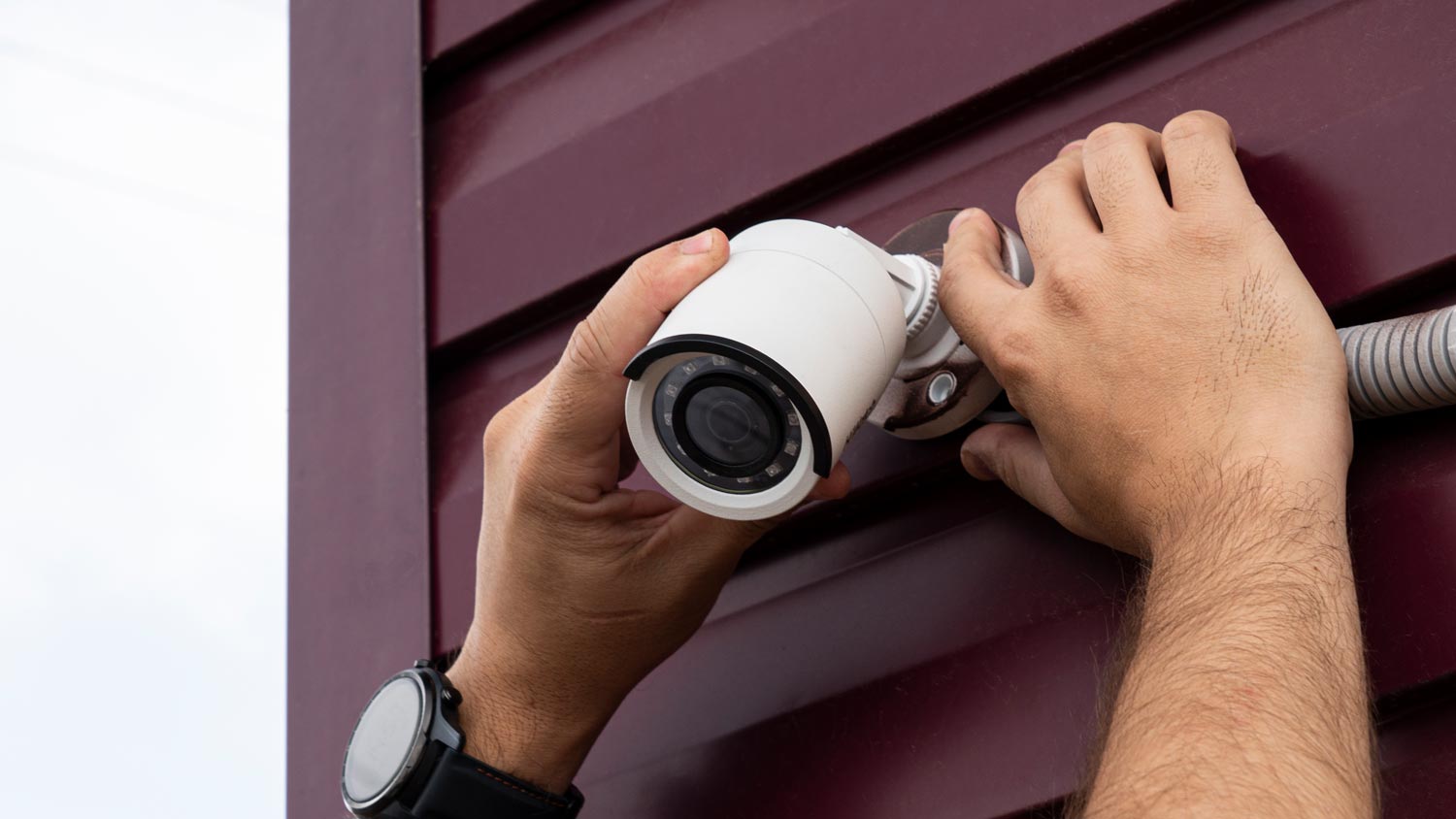
From your desired timeline to how many cameras you need repaired or installed, prepare to talk to a pro about these important surveillance camera questions.

How often do you ask yourself, why does my fire alarm keep beeping? There are plenty of culprits behind such an issue and a number of easy fixes.

Want to protect your family and home against common household dangers? Compare carbon monoxide detectors and smoke detectors by weighing their pros and cons.